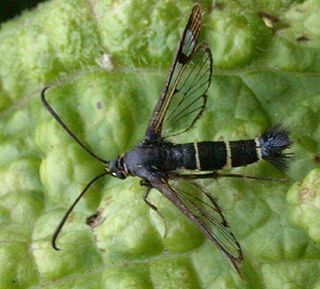
The Sesiidae or clearwing moths are a diurnal moth family in the order Lepidoptera known for their Batesian mimicry in both appearance and behaviour of various Hymenoptera.

Aristotelia is a genus of moths in the family Gelechiidae. Well-known species are food plant specialists, and diverse hosts are used – Salicaceae, Solanaceae, Rosaceae, Fagaceae, Fabaceae, Asteraceae.

Phthorimaea is a genus of moths in the family Gelechiidae. Species include the potato tuber moth, Phthorimaea operculella.
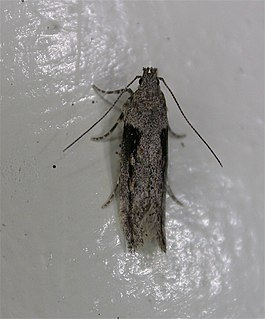
Symmetrischema is a genus of moths in the family Gelechiidae.

Eoophyla is a genus of moths of the family Crambidae. It was erected by Charles Swinhoe in 1900.
Piletocera is a genus of moths of the family Crambidae. The genus was first described by Julius Lederer in 1863.
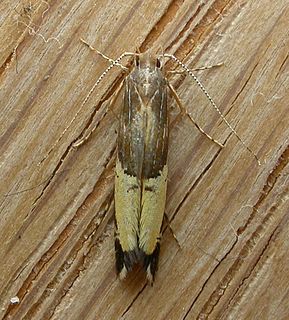
Labdia is a genus of moths in the family Cosmopterigidae.

The Oecophorinae are the nominate subfamily of moths in the concealer moth family (Oecophoridae). They are part of the insufficiently studied superfamily Gelechioidea, and like their relatives, the circumscription of this taxon is disputed.

Xyloryctidae is a family of moths contained within the superfamily Gelechioidea described by Edward Meyrick in 1890. Most genera are found in the Indo-Australian region. While many of these moths are tiny, some members of the family grow to a wingspan of up to 66 mm, making them giants among the micromoths.
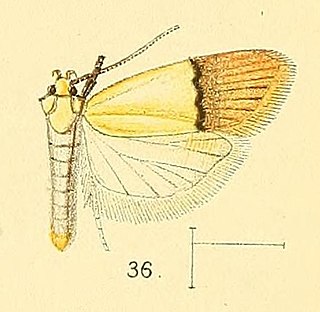
Odites is a genus of moths in the family Depressariidae. Most species of this genus are found in Asia and in Africa.
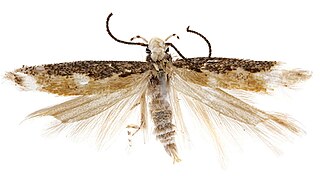
Gelechiinae is a subfamily of moths in the family Gelechiidae. It was described by Henry Tibbats Stainton in 1854.

Anomologinae is a subfamily of moths in the family Gelechiidae.
Symmetrischema ardeola is a moth in the family Gelechiidae. It was described by Edward Meyrick in 1931. It is found in Brazil.
Symmetrischema atrifascis is a moth in the family Gelechiidae. It was described by Edward Meyrick in 1917. It is found in Peru.
Symmetrischema conifera is a moth in the family Gelechiidae. It was described by Edward Meyrick in 1916. It is found in Ecuador.
Symmetrischema lectulifera is a moth in the family Gelechiidae. It was described by Edward Meyrick in 1929. It is found in North America, where it has been recorded Texas.
Symmetrischema fercularia is a moth in the family Gelechiidae. It was described by Edward Meyrick in 1929. It is found in North America, where it has been recorded Texas.
Symmetrischema loquax is a moth in the family Gelechiidae. It was described by Edward Meyrick in 1917. It is found in Peru.
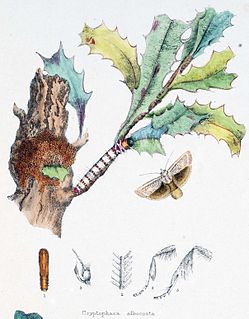
Cryptophasa is a genus of moths of the family Xyloryctidae.











